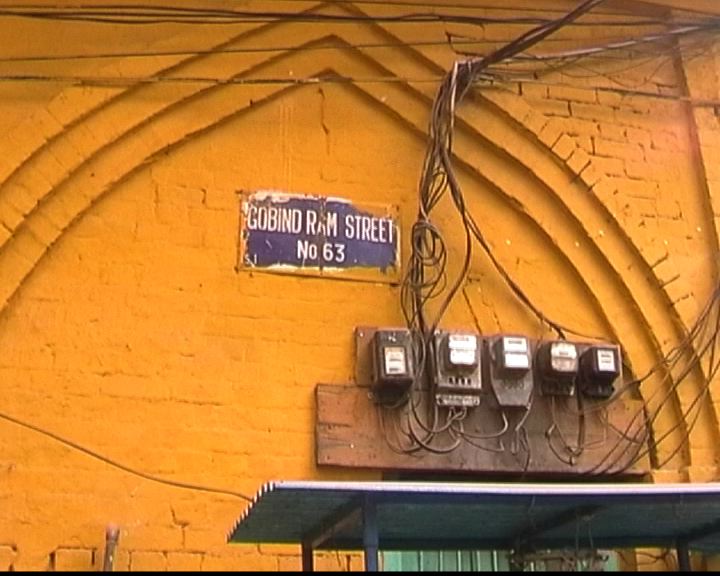Produced by the Public Service Broadcasting Trust (PSBT), the film follows the trip that marked the return to the roots for many. Wapsi captures the nostalgic moments of not just the filmmaker but also of many who have traveled or yearn to go across the border into Pakistan.
Wapsi travels through India and Pakistan during the India – Pakistan cricket series and returns not only to the idea of Pakistan or to the 57 year old Partition tales but to much more. In the words of the director Ajay Raina, “Wapsi in Hindustani language does not only mean ‘The returning’ as its literal English translation would suggest, but it also means – to go back, to start again, to give and to take. Wapsi means different things to different people. As for me personally, it was an unforgettable trip. I found out things that I did not know about, I had not been ever told about or had been lied to about.”
Wapsi is an hour-long documentary that unfolds languorously but never indulgently as it searches through India and Pakistan in an effort to understand the genuine yearning for peace against the reality of continuing communal violence in the region. There is seldom denying the truths that come on the canvas of the screen, and the slick editing as well as fast transitions back and forth in time and location make this documentary into a fast-paced revelation.
Beginning at the visa counters at the Pakistan High Commission in New Delhi, the filmmaker travels from India to Pakistan along with the cricket fans who are crossing the border to witness the much advertised and even much hyped Team India’s tour of Pakistan. The cricket is just an excuse as the filmmaker himself confesses. It is more a personal quest by the filmmaker who locates himself and his family as victims of communal politics, who have some justification to hate, but who also at the same time recognise that it is urgently necessary for our future well-being to refuse to nurture fear and hatred.
There really isn’t much cricket in the film. We visit the stadiums only occasionally and even when we are there it is only to follow a TV journalist coaching her willing interviewees to talk about peace. The ever-present theme of the film expresses a need to return to the common impulses that bind us together. There isn’t much searching needed to discover them. The evidence is everywhere. There is a beautiful song sequence where the streets of Lahore and Delhi are inter-cut with each other. I don’t think many will be able to distinguish one from the other. From the Food-Street in Lahore to the studios in Lollywood, everybody emphasizes that the two people are the same.
But, the genuine outpourings of warmth and welcome are always underlined with a suspicion and distrust that is hard to overcome. In the Food Bazaar, in the taxi rides along Multan Lahore highway, and more frighteningly, in the official annals of a state propaganda machinery that has created a new version of history of the sub-continent to explain and justify the creation of Pakistan. The excerpts from the PTV (Pakistan Television) documentary emphasize only the Islamic impulses of the Indus Valley Civilization ignoring its Buddhist and Hindu past.
Through this film, the filmmaker meshes memory, history and geography in his quest to unearth a pre-partition land uncorrupted by fundamentalism and majoritarianism. The film in a very subtle way brings home the point that one of the disasters of the Partition is that, in Pakistan (and now in parts of India too) a serious attempt is being made to wipe out the very presence of other faiths and modes of living as a part of state policy/or a political parties design and as a deliberate way of defining the state in only its religious narrowness.
The film does not dispute that there are serious grievances both communities may have had and continue to have against each other. In presenting us a much experienced and wizened tourist guide’s discourse on history at the beautiful Badshahi mosque at Lahore, the filmmaker shows us how even a common man’s interpretation of history can become coloured with the villainy of the ‘other’ through a constant barrage of propaganda in state media and school and college text books. This is all the more evident in the clips from the Pakistani Fiction Films like Ladki Punjaban where stereotype images from Partition of bloody Sikhs and treacherous Hindus surface to take the story to its logical conclusion.
These differences have existed. But so have the continuous attempts to overcome them. After all it was in an urge to bridge these differences that Sikhism emerged as a religion. The filmmaker visits the holy shrines of Punja Sahib and Nankana Sahib in an effort to re-connect with the impulses that have stressed a return to peaceful co-existence. There is a lovely sequence of Sikh girls, shy and confident at the same time, playing cricket. In Pakistan! I wonder if that is even possible in the other villages of India or in Pakistan.
What the film shows is that, It is important to recognize that nature and culture can be more generous with beauty and creative intelligence than the ideologues of power are ever willing to accept. In the last few sequences, the filmmaker explores Sufism and its music as part of the common heritage that unites us all. The Sufi, in his search for God finds Love. And nature is but varied expressions of God and Love. The film concludes with such an emphasis, wordless, music being sufficient, to the beats of a dancing Sufi dervish. It is heartening to note that, contrary to communal histories in India and Pakistan, our traditions and cultures and even Cricket offer sufficient reasons to live more tolerant and more respectful lives.
Hindi, Urdu, Documentary, Color


